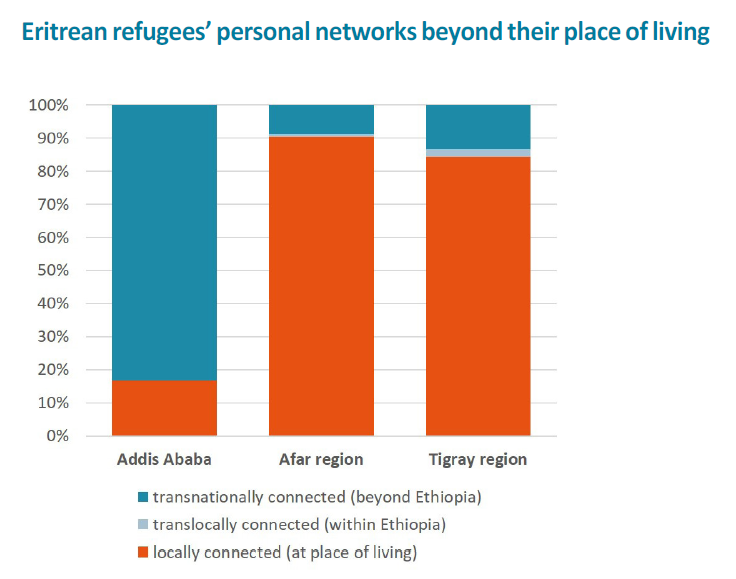TRAFIG practice note no. 5
Supporting self-reliance for local integration
Eritrean refugees in Ethiopia
Many Eritrean refugees who live in camps in Ethiopia have no translocal or transnational connections. This means they have little opportunity to move onward from the camp and resettle elsewhere. However, many of them have strong connections with the host community, and even the most vulnerable refugees show resilience in everyday life. For these refugees, local integration may be the only way out of protracted displacement. Donors and aid agencies can help.TRAFIG research has found that the ability to break free from protracted displacement is mainly determined by a refugee’s networks and connectivity. Local and translocal connectivity enable refugees to move out of camps, secure livelihoods, widen future chances and process their onward mobility.
This practice note analyses the importance of supporting self-reliance for local integration as a solution to protracted displacement.

Authors: Elvan Isikozlu, Fekadu Adugna Tufa
Cite as: Isikozlu, E., Tufa, F. A. (2021). Supporting self-reliance for local integration: Eritrean refugees in Ethiopia (TRAFIG practice note 5). Bonn: BICC. DOI: 10.5281/zenodo.5841924
You can download TRAFIG practice note no. 5 here.
This practice note is based on: Tufa, F. A. et al. (2020). Figurations of Displacement in Jordan and beyond: Empirical findings and reflections on protracted displacement and translocal connections of Eritreans in Ethiopia (TRAFIG working paper 5). Bonn: BICC. DOI: 10.5281/zenodo.5841864.